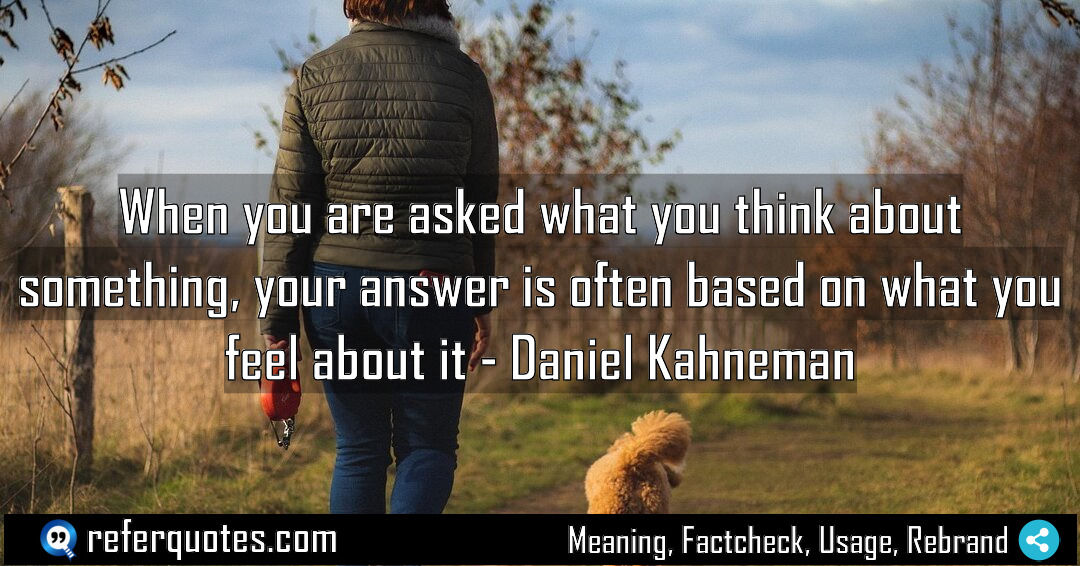When you are asked what you think about something, your answer is often based on what you feel. It’s a simple truth that reveals how our minds really work, and once you see it, you can’t unsee it.
Share Image Quote:Table of Contents
Meaning
It means our “rational” thoughts are frequently just emotional reactions in disguise. We feel first, and then we construct a logical-sounding story to justify that feeling.
Explanation
Look, here’s the thing. We like to believe we’re these perfectly rational creatures, weighing pros and cons before we make a decision. But Kahneman’s research, which I’ve seen play out in marketing and user behavior for years, shows that’s mostly a story we tell ourselves. The reality is, our fast, intuitive, emotional brain—what he calls System 1—makes a snap judgment. It’s a gut feeling. Then, our slower, more deliberate System 2 brain comes in after the fact and cooks up a rational explanation for a choice that was already made. It’s not lying, per se. It’s just post-rationalizing. So when someone asks for your opinion, you’re often just reporting the conclusion of a process you weren’t even consciously aware of.
Quote Summary
| Context | Attributes |
|---|---|
| Original Language | English (3668) |
| Category | Emotion (177) |
| Topics | decision (31), emotion general (105), feelings (6) |
| Literary Style | conversational (15) |
| Emotion / Mood | provocative (175) |
| Overall Quote Score | 82 (297) |
Origin & Factcheck
This insight comes straight from Daniel Kahneman’s 2011 masterpiece, “Thinking, Fast and Slow.” It was published in the United States and synthesized decades of his Nobel-prize winning research with Amos Tversky. You sometimes see similar sentiments floating around, but this specific phrasing and the robust science behind it is uniquely Kahneman’s.
Attribution Summary
| Context | Attributes |
|---|---|
| Author | Daniel Kahneman (54) |
| Source Type | Book (4032) |
| Source/Book Name | Thinking, Fast and Slow (54) |
| Origin Timeperiod | 21st Century (1892) |
| Original Language | English (3668) |
| Authenticity | Verified (4032) |
Author Bio
Dr Daniel Kahneman transformed how we think about thinking. Trained in Israel and at UC Berkeley, he built a career spanning Hebrew University, UBC, UC Berkeley, and Princeton. His partnership with Amos Tversky produced prospect theory and the heuristics-and-biases program, culminating in the Nobel Prize in Economic Sciences. He engaged broad audiences through bestselling books and practical frameworks for better decisions. He continued writing and advising late into life, leaving ideas that shape economics, policy, medicine, and management. If you want to dive deeper, start with the Dr Daniel Kahneman book list and explore his enduring insights.
| Official Website
Where is this quotation located?
| Quotation | When you are asked what you think about something, your answer is often based on what you feel about it |
| Book Details | Publication Year: 2011; ISBN: 9780374275631; Latest Edition: Farrar, Straus and Giroux, 2013; Number of pages: 499. |
| Where is it? | Part I: Two Systems, Chapter 9: Answering an Easier Question, Approximate page 99 (2013 edition) |
